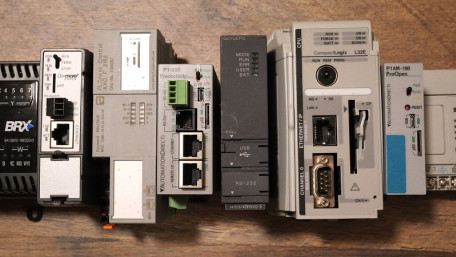
Learn all about the central processing unit (CPU): the built-in module inside the PLC responsible for executing the program and communicating with external devices.
Learn all about the central processing unit (CPU): the built-in module inside the PLC responsible for executing the program and communicating with external devices.
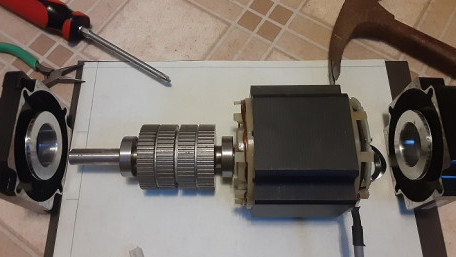
When the angle or distance of motion is more important than speed and power, certain motors shine brighter, like…
When the angle or distance of motion is more important than speed and power, certain motors shine brighter, like steppers, named for the individual steps they take when control voltage is applied.
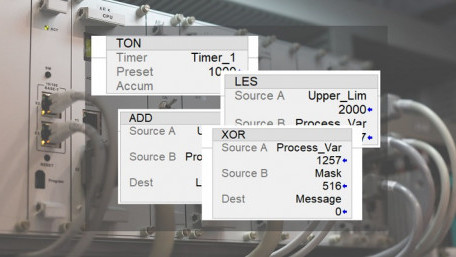
Function block diagram (FBD) programming is a common language for PLCs following the IEC 61131 standard. What is FBD, and…
Function block diagram (FBD) programming is a common language for PLCs following the IEC 61131 standard. What is FBD, and how does it differ from the familiar ladder logic programs?
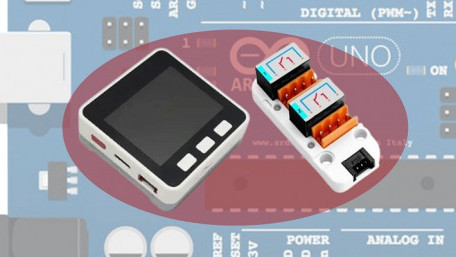
Triggering a machine by an external event often requires a pulse timer for OpenPLC Pulse Timer control. Here’s a brief…
Triggering a machine by an external event often requires a pulse timer for OpenPLC Pulse Timer control. Here’s a brief tutorial on how an M5Stack Core can offer a simple, effective low-cost Arduino OpenPLC HMI solution.
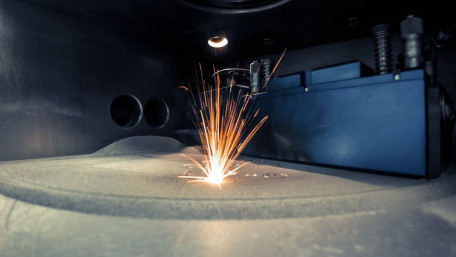
Additive manufacturing includes, but is not limited to, printing parts in 3D. Creating these parts in metal presents…
Additive manufacturing includes, but is not limited to, printing parts in 3D. Creating these parts in metal presents unique challenges and requires some rather innovative additive technologies.
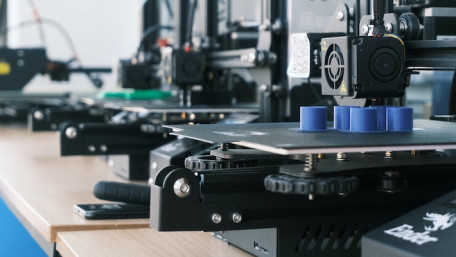
3D printers have come a long way over the years, but can we really expect to see them on the factory floor, taking the…
3D printers have come a long way over the years, but can we really expect to see them on the factory floor, taking the place of large machining centers? What benefits and challenges does printing offer to manufacturing?
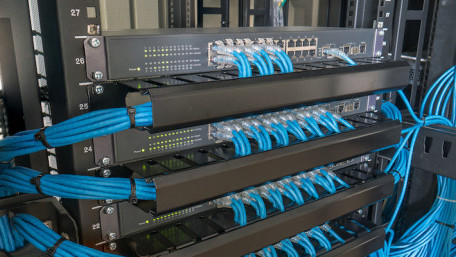
Industrial network switches connect automation equipment, controllers, and other such devices. Learn about unmanaged,…
Industrial network switches connect automation equipment, controllers, and other such devices. Learn about unmanaged, managed, and PoE enabled switches, as well as the differences between switches, routers, and hubs.
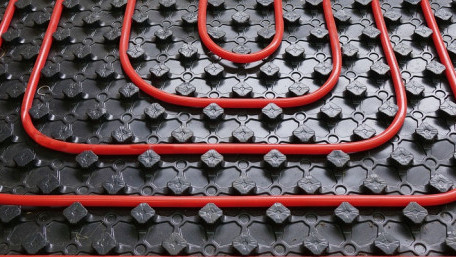
No matter how robust an automated control system might be, physical damage is a reality that plagues all machines. Thanks…
No matter how robust an automated control system might be, physical damage is a reality that plagues all machines. Thanks to new breakthrough materials, some failures may be prevented—or even reversed.
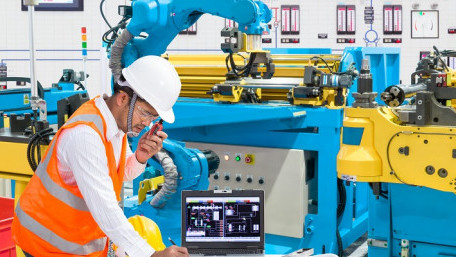
When a robot crashes, it needs to be put back into position. The steps in this process depends on the end user and the…
When a robot crashes, it needs to be put back into position. The steps in this process depends on the end user and the equipment manufacturer. Understanding why the robot crashed also helps prevent future failures.
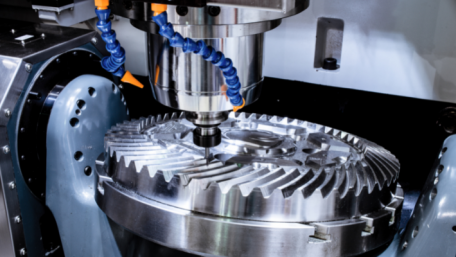
Programming languages often include sine and cosine functions. They simplify programming, but consume valuable memory…
Programming languages often include sine and cosine functions. They simplify programming, but consume valuable memory space and computation time. This can be overcome using simple approximations.
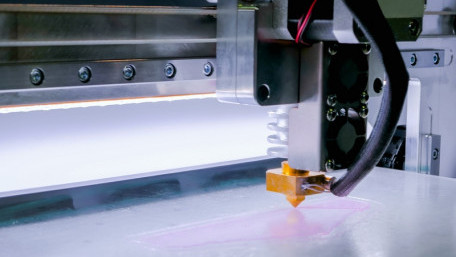
As digital transformation continues to rise, technologies such as 3D printing also skyrocket. What is the relationship…
As digital transformation continues to rise, technologies such as 3D printing also skyrocket. What is the relationship between these terms, and how can 3D printing help manufacturers and shops on their journey toward digital transformation?
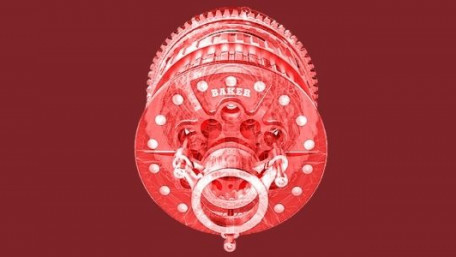
Solidworks or AutoCAD? Which software is the right fit for you and your team? Take a dive into the fundamental components…
Solidworks or AutoCAD? Which software is the right fit for you and your team? Take a dive into the fundamental components of both programs and the key differences between them.
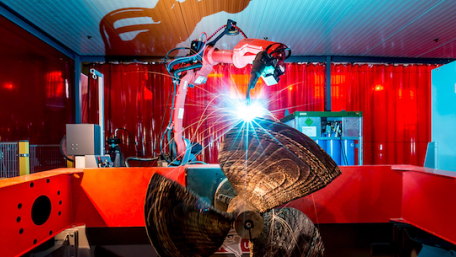
This article introduces the concept of Computer-Aided Manufacturing (CAM) and discusses some common uses for CAM for…
This article introduces the concept of Computer-Aided Manufacturing (CAM) and discusses some common uses for CAM for controls and automation specialists.
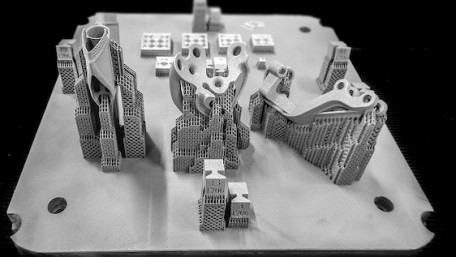
This article will consider ways companies can use a full-digital thread and real-time monitoring that might lead to a…
This article will consider ways companies can use a full-digital thread and real-time monitoring that might lead to a better understanding of 3D printing part failures.
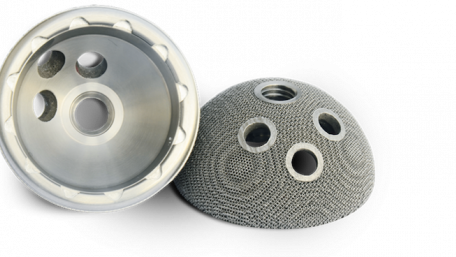
This two-part series will look at failures in additive manufacturing, how it happens, and what might prevent it from happening.
This two-part series will look at failures in additive manufacturing, how it happens, and what might prevent it from happening.
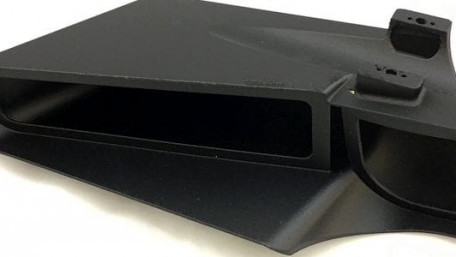
The following will look at key factors in manufacturing carbon fiber parts and how 3D printing could address some of the…
The following will look at key factors in manufacturing carbon fiber parts and how 3D printing could address some of the materials processing challenges.
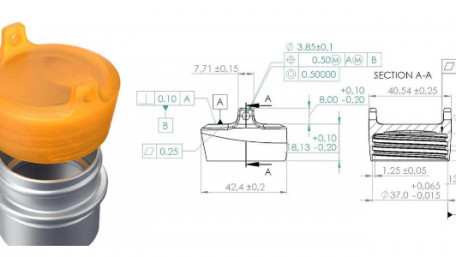
A look at how cameras are used to detect GD&T based on the resolution of the camera, and how to achieve higher tolerances…
A look at how cameras are used to detect GD&T based on the resolution of the camera, and how to achieve higher tolerances by using a differential waveform.
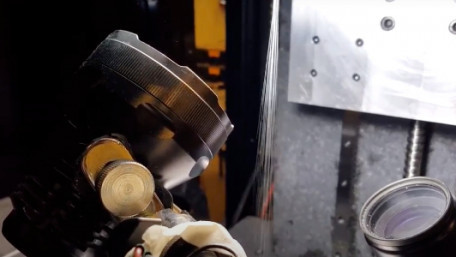
As metal additive manufacturing companies find more ways to increase speeds and decrease costs, the innovation behind…
As metal additive manufacturing companies find more ways to increase speeds and decrease costs, the innovation behind this technology is continually expanding.
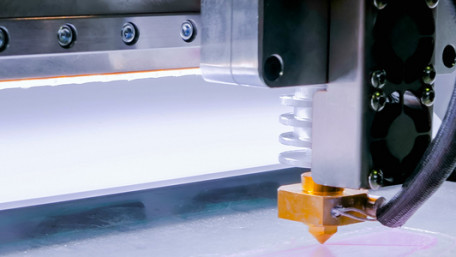
Additive manufacturing, or the more popularized term 3D printing, has become a staple for small-batch manufacturing of…
Additive manufacturing, or the more popularized term 3D printing, has become a staple for small-batch manufacturing of some products. It’s even a common sight within companies whose main product is not even a manufactured item! What makes these devices such a great choice for small manufacturing companies?
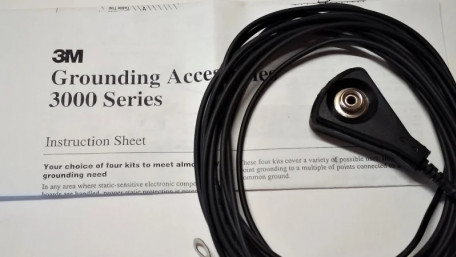
When it comes to electrical grounding, many strategies are employed to accomplish different tasks. One of the main…
When it comes to electrical grounding, many strategies are employed to accomplish different tasks. One of the main reasons for grounding equipment is for the safety of users and equipment while maintaining strict adherence to regulations.
